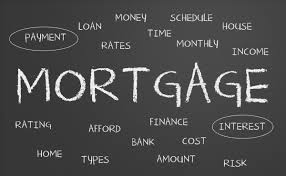 A lot of people get into trouble with their mortgages because they don’t really understand the options that they have, nor even how many options are available to them. There are a lot of different types of mortgages; some will pay off best given your situation, whereas others may end up bringing you a lot of trouble in the near-future.
A lot of people get into trouble with their mortgages because they don’t really understand the options that they have, nor even how many options are available to them. There are a lot of different types of mortgages; some will pay off best given your situation, whereas others may end up bringing you a lot of trouble in the near-future.
mortgages
 Buying a home is one of the most expensive purchases of a lifetime. Most buyers opt to borrow money from lenders to purchase their properties, locking themselves into potentially 30 years of mortgage payments. Not only are homes costly, but loans are too. Interest is the price borrowers pay their lenders for advancing them money, and it’s due until the loan is entirely paid back. Even though interest rates recently declined benefitting borrowers, there are a few additional ways homebuyers can save money on their mortgages.
Buying a home is one of the most expensive purchases of a lifetime. Most buyers opt to borrow money from lenders to purchase their properties, locking themselves into potentially 30 years of mortgage payments. Not only are homes costly, but loans are too. Interest is the price borrowers pay their lenders for advancing them money, and it’s due until the loan is entirely paid back. Even though interest rates recently declined benefitting borrowers, there are a few additional ways homebuyers can save money on their mortgages.
1. Make a Large Down Payment
Prospective homebuyers searching for affordable mortgages should start by evaluating their home budgets. With less expensive properties, buyers assume smaller loan sizes and cheaper monthly payments. Additionally, more affordable homes allow buyers to pay larger down payments. Down payments of at least 20 percent of the purchase price of the home save borrowers money over the long-term. When a borrower pays less than 20 percent toward the home purchase, the lender accepts more than 80 percent equity in the home. Lenders who assume that level of risk require borrowers to pay private mortgage insurance (PMI) to protect the lender’s investment. Some lenders require borrowers to pay PMI upfront, but generally, it’s rolled into monthly mortgage payments.
Although the rules for mortgages in Canada changed effective July 9th, I wanted to highlight some of the changes for you in case you missed them when they were first introduced.
What’s changed?
Under the rules that went into effect, borrowers are allowed to use up to 80% of their property’s value as collateral for home-equity loans, down from 85%. This means that Canadians can’t borrow as much as before from their home’ s equity.
In addition, the maximum amortization period dropped to 25 years from 30 years for government insured mortgages. Note that the 30 year amortization is still available for mortgages as long as the buyers make at least a 20% down payment. It is only the government insured mortgages that are affected.
